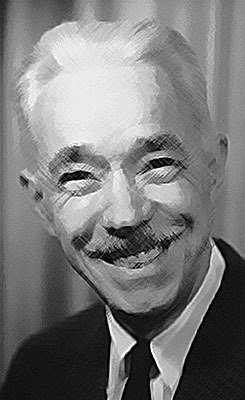Tips For Managers On Adopting Personalized Learning For Millennials
There has been a shift in the world of Learning and Development. Today's employees place a higher value on workplace learning and career development than before. Technology has also played a significant role in the need for continuous learning. Automation and newly developed technology influence industry changes that create a need for skill development all the time.
However, one of the largest factors that is currently impacting the modern workplace and L&D is the growing number of working millennials. Millennials are now the largest generation in the labor force. According to the Pew Research Center, there are more than 56 million millennials in the workforce today which is more than any other generation [1]. This has impacted many of the current workplace trends and the effectiveness of more traditional training methods.
Data shows that the millennial generation values workplace learning more than older generations and that they are also the most disengaged employees. Gallup recently reported that only 29% of millennial workers are engaged [2].
Further research has led many L&D professionals to conclude that this lack of engagement is due to the ways this generation prefers to work and learn, which is much different than the preferences of previous generations. Fortunately, there are new learning methods that businesses are beginning to use to increase the engagement of their millennial employees, including personalized learning models.
Personalized learning experiences have been proven to increase retention rates and boost the engagement levels of millennials, Gen Xers as well as younger adults who are now entering the workforce. However, there are 3 questions managers should ask before adopting a personalized learning model.
What Are The Key Benefits?
The purpose of any employee training program is generally to increase employee skill level and productivity, however, every organization has different goals and challenges to deal with. To truly know if a personalized learning model will work for your organization you must first evaluate the benefits to understand if they will help you overcome the challenges your company is facing. Personalized learning models have some key benefits for both the employees and the companies they work for, including the following.
Benefits For The Organization
- Speeds up competency
Personalized learning programs only focus on teaching students what they need to know. Competency tests along with learning analytics remove irrelevant content from individual learning paths speeding up the time of training. - Increases engagement
Increasing the relevance of the learning content ensures that learning paths are short and highly focused on relevant information. Millennials are known for losing interest in irrelevant content quickly. Personalized learning paths boost engagement by ensuring that each piece of training fits the learners' needs. - Improves retention
Providing quality learning experiences does not only help your organization attract new talent, but it also increases the length they will stay working at the organization. 87% of millennial employees believe development opportunities are an important job attribute [3]. - Increases operational efficiency
Personalized learning paths optimize training by decreasing the time needed for training and by improving knowledge retention and application rates.
Benefits For The Employees
- Personalized feedback
Constructive feedback is important for all employee growth, but it is valued even more by the millennial generation. They see feedback as an integral part of their development process. Personalized eLearning programs often provide unbiased feedback throughout the learning process giving employees the extra guidance they need. - Relevant training they can apply on the job
Personalized learning paths provide only the courses and content that is the most relevant. This helps employees save time and makes it easier for them to remember as well as apply what they learn. - Fits into their schedules
The millennials' typical work schedule often looks different than the usual 9-5 schedule. They often work in remote or distributed teams and don't always work the usual hours. Personalized learning experiences break down learning content into small digestible pieces of content that employees can watch at any time.
Is This Strategy Suitable For The Training Topics?
Personalized online learning programs are suitable for most topics. However, there are some topics that are more suitable than others. If your training program is centered around soft skills training, employee onboarding, or needs simulations, a personalized strategy would work well [4].
On the other hand, online training does not work as well for more technical skills that need a hands-on approach to be effective.
A common misconception regarding online learning and personalized learning programs is that they lack social elements. Although there are limitations to social interactions and team-building in online learning environments, there are social elements that can be added to help enhance the social aspects of learning.
How Do You Optimize And Get The Most Out Of A Personalized Learning Program?
Once you decide that a personalized strategy fits your needs, you may want to take the time to consider what can be done to optimize your training program. As mentioned earlier, integrating social elements such as virtual training sessions and chat features and using personalized learning along with a flipped classroom model can increase the social interactivity of the program.
Learning analytics is another tool that you can use to get the most out of your training program. This feature can help you analyze learning patterns and identify what content is working well as well as which content can be improved upon.
Conclusion
Both employee turnover and engagement have significantly declined recently. As organizations look for solutions, it is important to consider how the recent generational shift has impacted the current workplace trends. As the millennial presence in the current workforce continues to increase, it is becoming essential for organizations to use learning models that meet their unique needs without disengaging other members. Personalized learning tailors training to meet each individual's specific learning needs and preferences. This helps improve engagement and increases the value of the learning experiences for employees in every generation.
To learn more about utilizing learning strategies to engage your millennial workforce, read the eBook Personalized Learning Experiences: Gearing Up For The Millennial Workforce.
References:
[1] Millennials are the largest generation in the U.S. labor force
[2] Few Millennials Are Engaged at Work
[3] Millennials Want Jobs to Be Development Opportunities
[4] Why an Effective Employee Onboarding Plan is Crucial?









